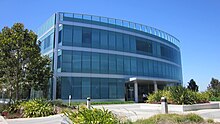| Revision as of 08:05, 25 July 2014 edit27.7.35.184 (talk)No edit summary← Previous edit | Revision as of 16:03, 25 July 2014 edit undoDeepak2324 (talk | contribs)2 editsNo edit summaryTag: Incorrectly formatted external link or imageNext edit → | ||
| Line 3: | Line 3: | ||
| {{Infobox company | {{Infobox company | ||
| | name = INFORMATICA | | name = INFORMATICA | ||
| | logo = |
| logo = <gallery>http://www.eccellaconsulting.com/wp-content/uploads/2012/09/informatica.jpg</gallery> | ||
| | type = ] | | type = ] | ||
| | traded_as = {{NASDAQ|INFA}} | | traded_as = {{NASDAQ|INFA}} | ||
Revision as of 16:03, 25 July 2014
| The article's lead section may need to be rewritten. Please help improve the lead and read the lead layout guide. (June 2011) (Learn how and when to remove this message) |
| Company type | PUBLIC |
|---|---|
| Traded as | Nasdaq: INFA |
| Industry | Software industry |
| Headquarters | RedWood City, California, United States |
| Area served | Worldwide |
| Products | Data Integration, Data Quality, Master Data Management, Information Lifecycle Management, Cloud |
| Revenue | $948 million(2013) |
| Number of employees | 3300+ |
| Website | http://www.informatica.com |
Informatica Corporation (Nasdaq: INFA) is a software development company. Founded in 1993, it's headquartered in Redwood City, California. It was founded by Diaz Nesamoney and Gaurav Dhillon. Sohaib Abbasi is the company's Chairman and CEO.
Main products
Informatica's product is a portfolio focused on Data Integration: ETL, Information Lifecycle Management, B2B Data Exchange, Cloud Data Integration, Complex Event Processing, Data Masking, Data Quality, Data Replication, Data Virtualization, Master Data Management, Ultra Messaging; currently at version 9.6 These components form a toolset for establishing and maintaining enterprise-wide data warehouses. It has a customer base of over 5,000 companies.
In 2006, Informatica launched its Informatica Cloud business.
Working Architecture
Informatica PowerCenter, the flagship tool of Informatica works on basis of transformations which transform data in multiple ways.
Type of transformations:
• Active : One that can change the number of rows being output.
• Passive : One that cannot change the number of rows being output.
Transformations examples:
• Source qualifier - conversion of source datatypes to Informatica datatypes
• Expression - transforming data with functions
• Lookups - joining data with lookups
• Sorter & Aggregator - sorting and aggregating data
• Update Strategy expressions
• Transaction control - how to create transactions and control commits and rollbacks
• Java transformation - invoking Java methods, variables, third-party API's and built-in packages with Java transformation
Financial results

| 2009 | 2008 | 2007 | 2006 | |
|---|---|---|---|---|
| Revenue (USD) | 600,693,000 | 455,699,000 | 391,256,000 | 324,598,000 |
| Net Income (USD) | 67,299,000 | 55,980,000 | 54,616,000 | 36,206,000 |
Informatica has mainly seen growth through a combination of organic growth and growth through acquisition.
References
- Seeking Alpha, Seeking Alpha, retrieved 23 January 2014
- INFA: Stock Quote & Summary Data, NASDAQ, retrieved 15 May 2010
- ^ Informatica, Informatica website, retrieved 15 May 2010
- ^ Magic Quadrant for Data Integration Tools, Gartner, 25 November 2009, retrieved 15 May 2010
- Adrian, Merv (10 June 2010), Informatica Re-Factors the Value Chain for the Cloud, IT Market Strategy, retrieved 7 July 2010
- Karel, Rob (28 January 2010), Introducing The MDM Market’s Newest 800lb Gorilla: Informatica Acquires Siperian!, Forrester, retrieved 15 May 2010
External links
Categories: